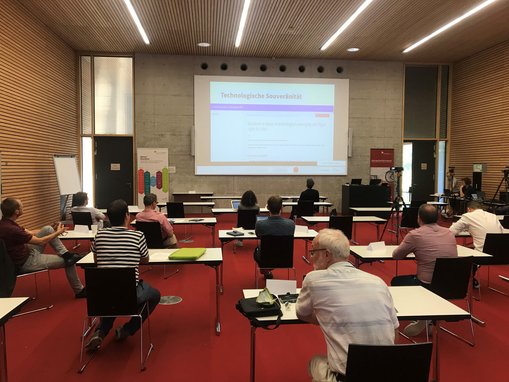Bike-sharing defies Corona
A moderate decline in demand during the lockdown and significant growth afterwards – that was the provisional conclusion reached by bike rental systems in seven cities and regions across Germany. Representatives from mobility service providers from Dresden, Cologne, Mainz, Munich, Nuremberg, and the Rhine-Neckar region provided this assessment along with further information on the current status at yesterday’s hybrid conference “Corona, digitalization and the mobility sharing world: status quo and outlook” at RheinMain University of Applied Sciences. In addition to 15 experts on site, more than 100 registered participants were able to attend the short presentations and the discussion chaired by Prof. Dr. Volker Blees, Professor of Transportation in the Mobility Management degree program, via video.
Besides the effects of the corona pandemic, the event focused on the future development of bike-sharing and, in particular, digitalization. Users of the bike-sharing service, which has so far mainly been available in large cities, can look forward to a growing network of rental stations, seamless integration into the public transport system, and additional rental services for the booming modes of transport pedelec and cargo bike. But in suburban areas such as the region around Cologne and Bonn, bike-sharing services tailored to the particular requirements outside the city centers are also starting to operate successfully.
Use of Open Data
Computer scientist Stefan Kaufmann, who joined the event from Ulm, contributed interdisciplinary input, sparking curiosity and interest in the possibilities and opportunities of Open Data in the transport sector, i.e., open, freely usable and processable transport-related data. Using practical examples from the USA, Finland, and other countries, he illustrated the advantages for municipalities and transport users compared to standard central platform solutions offered by large providers. The subsequent discussion revealed that the participants would welcome more information on the topic.
Due to the corona pandemic, the bike-sharing conference hosted every two years by RheinMain University of Applied Sciences together with the “Kommunale Austauschrunde Fahrradvermietsysteme” (a municipal exchange of experience and ideas on bike rental systems), was replaced by the online seminar. The event is part of the transfer project IMPACT RheinMain, which is funded by the German Federal Ministry of Education and Research, as well as the “Roadshow Radverkehr”, (“Bicycle traffic roadshow”), a series of online seminars held by the seven universities with an endowed professorship for cycling funded by the German Federal Ministry of Transport and Digital Infrastructure.
The presentations and a recording of the live event are available on the University’s YouTube channel.
